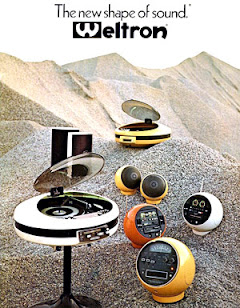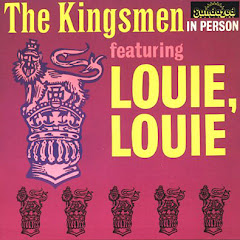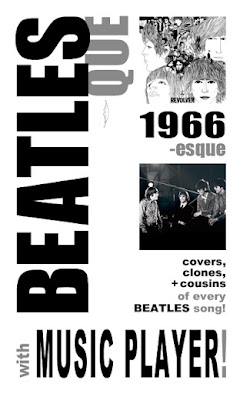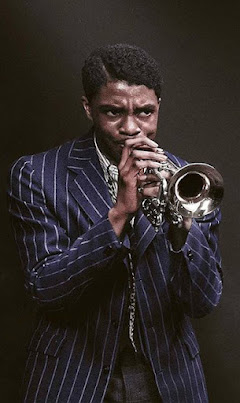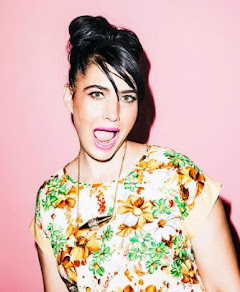Music Players!
brings you the actual, all-inclusive
history of Rock'n'Soul music,
with essay overviews and Music Players.
▶ History Checklist
Today, the brainstormin' Buddy Holly, man of vision!
Hear 2 massive music players, one of Buddy and one of all his disciples from the 1950s to today!
Music Player quick-links:
𝟭 Buddy Holly
𝟮 Buddy Holly's disciples: 1950s-Today
RAVE ON:
The Music of Buddy Holly
by Tym Stevens
The everyman who changed everything.
Elvis was the sexy crooner, Little Richard> the fierce belter, Chuck Berry> the guitar god. But Buddy Holly was the crowd itself, crashing the stage. Lanky, button-down, and big spex, the antidote to matinee idols and avatar to mere mortals.
Buddy was the triumph of normal life breaking through the spectacle, a clarifying moment and palette cleanser desperately and repeatedly needed in all culture.
His appearance and chords and band seemed the essence of simple. But Buddy was complex, fluid, and on fire. In a greasefire 18-month span, he redefined Rock and opened all the doors that the rest would get to explore.
Refine, redefine.
Buddy wrote his own songs while others still interpreted. Buddy stripped out the horns and piano, creating the lead/rhythm/bass/drums template for Rock bands. He double-tracked his voice, brought in orchestral strings, and produced sessions. He popularized the Fender Stratocaster. His chords and changes became more tricky and mercurial.
Buddy Holly And The Crickets toured with an all-black revue and won over the Apollo Theatre. He married a Puerto Rican woman, brought Tejano influence in with "Heartbeat" [followed by Freddy Fender covering "Esa Sera El Dia (That'll Be The Day)"], and supported label mates like Carolyn Hester and Sherry Davis. He planned to make an album with his idols Ray Charles and Mahalia Jackson.
He signed on two labels simultaneously, as himself and the band, to outwit industry thievery. (Cue Parliament-Funkadelic, and The Artist Formerly Known As Prince.) He moved toward owning his own publishing and label. (Cue The Buzzcocks and indie rock.) And he was first to be out and proud about needing glasses. (Cue geek chic.)
And, most sadly, he was the first major rocker to die, and to be exploited by the record industry (stripmined and over-overdubbed).
But the loss of Buddy Holly isn't really "the day the music died". Buddy's acts and wax opened up the future for singer/songwriters, quartet combos, studio wizards, Strato-blasters, indie upstarts, and geek empowerment for decades to come.
Buddy Holly was honest passion, and he gave us a love that will not fade away.
NOT FADE AWAY:
The Disciples of Buddy Holly
by Tym Stevens
Hear the unlimited Playlist here.)
influenced by Buddy Holly, including:
Waylon Jennings • Wanda Jackson • John Barry
Everly Brothers • Del Shannon • The Chantays
The Beatles • Rolling Stones • Lonnie Mack
Bobbie Fuller • Moody Blues • Jimmy Page
The Kinks • The Monkees • The Small Faces
Blind Faith • Grateful Dead • Don McLean
Raspberries • Foghat • Showaddywaddy
John Lennon • Paul McCartney • Elvis Costello
Blondie • The Clash • The Knack • The Cramps
Fleetwood Mac • Dead Kennedys • The Cars
Squeeze • Lene Lovich • Rockpile • Stray Cats
The Beat • Bruce Springsteen • Chris Isaak
Neil Young • Thee Mighty Caesars • Mekons
The La's • Julee Cruise • Tav Falco
Pavement • Flat Duo Jets • Flat Duo Jets
The Detroit Cobras • Erasure • Rogue Wave
Kung Fu Monkeys • Chris Whitley • M.Ward
Dum Dum Girls • She & Him • Ringo Starr
Fiona Apple • Black Keys • Vampire Weekend
Shannon + The Clams • Baby Shakes
and many, many more!
Buddy Holly discovered Waylon Jennings and opened the door for more Texas rockers like ZZ Top, Joe Ely, the Vaughan brothers, and Mars Volta. He may have done as much to popularize the Bo Diddley beat as even Bo Diddley>!
The punk standard "I Fought The Law" exists because of him. Sonny Curtis, a rotating member of The Crickets, was a crack songwriter; when the band continued after Buddy's death, they recorded Curtis' "I Fought The Law" in Buddy's style in 1960. (Curtis also wrote "Walk Right Back", "More Than I Can Say", and the Mary Tyler Moore theme, "Love Is All Around".) The song hit huge when covered by Buddy acolytes The Bobby Fuller Four in 1965, becoming a Garage standard. In the late '70s, The Clash and Dead Kennedys turned it into a punk broadside for the ages.
Buddy toured Australia and the United Kingdom. His sound and fashion had seismic influence on the youth who became the coming British Invasion; The Beatles, The Hollies, The Searchers, Gerry and The Pacemakers. The Rolling Stones first broke big covering "Not Fade Away". Sonic sorcerer Joe Meek evidenced his obsession with Buddy Holly in his productions, such as Mike Berry and The Outlaws' "Tribute To Buddy Holly".
The Beatles connection is especially acute; their name, working-class approachability, originals like "I'll Be On My Way" and their cover of "Words Of Love", using the studio as an instrument, and going orchestral. McCartney even owns Buddy's song publishing.
Buddy's death inspired clear tributes but also some more abstract. Don McLean's allegorical opus "American Pie" (1971) mythologizes the first era of Rock from Presley through Altamont, opining that the plane crash of Holly, Ritchie Valens, and The Big Bopper was "the day the music died", when the music lost its innocence and perhaps its way.
Interest in Buddy skyrocketed after the release of the film THE BUDDY HOLLY STORY (1978), and again with the first 'jukebox musical' "Buddy" (1989), still touring worldwide.
Buddy also renovated Rock vocals. Elvis had turned hiccups into a swagger, a ricochet of verbiage and reverb. Between Rockabilly and Doo Wop, the era was already elastic in elocution. But Buddy seemed to further deconstruct syllables into a melismatic morse code, a reconstruction by interpolation which chopped and distorted words into feels (e.g., "Peggy Sue").
This was paralleled in period rockers like Bettie McQuade's "Tongue Tied" and Kathy Zee's "Buzzin". It is also prescient of radical vocalists to come like Yoko Ono, Damo Suzuki, Annette Peacock, and Diamanda Galas who turned tonsils into tonescapes.
Besides his pop canniness and normal=rebel style, Buddy's livewire yelp was conducted by New Wave singers with angular affected vocals like Devo, The Cars, The B-52's, Nina Hagen, Lene Lovich, Talking Heads, XTC, Elvis Costello (Presley's name in Buddy Holly's body!), and Missing Persons. What they did doesn't sound like him, but how they did it does.
Buddy ironically inverted spectacle by wearing spectacles. Glasses meant normal, smart, contrary, honest. They were the opposite of theatre (until someone postures those traits which returns it to theatre). Buddy the everyman gave the many anypersons the repeal to keep it real. His sartorial throughline links from John Lennon roundrims, to the Talking Heads' "average" aesthetic, to Geek Chic, to Nerdcore.
2) Elton John; Curtis Mayfield; Cheap Trick; Linton Kwesi Johnson
3) Donnie Iris; Marshall Crenshaw; RUN-DMC; Morrissey
4) Bjork; Jarvis Cocker; JD Sampson; Asa
Stay true to yourself, follow your vision. Any person can change anything.
© Tym Stevens
See Also:
• Revolution 1950s: The Big Damn Bang of Rock'n'Roll!
• 1950s PUNK: Sex, Thugs, and Rock'n'Roll!
• CHUCK BERRY: The Guitar God and His Disciples
• BO DIDDLEY: The Rhythm King and His Disciples
• LITTLE RICHARD: The Voice of Rock and His Disciples
• JIMMY REED: The Groover of Rock, From Motown To Sesame Street
• The Real History of Rock and Soul!: A Manifesto, A Handy Checklist




























